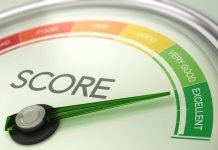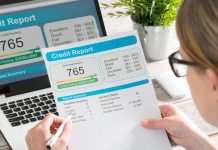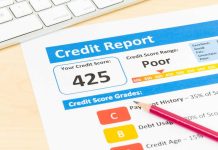
Low income families can face plenty of problems. Some problems can include lack of employment, difficulty handling necessities like groceries, bills and more. Oftentimes, low income people can find themselves having a hard time with their finances. Financial problems like a low credit score and drowning in debt are common. This can make their situation even harder to deal with. Fortunately, there are solutions that can help you improve your credit report and take your finances into your own hands. Today, we’ll teach you all that you need to know about credit repair for low income families.
Your credit score is an important part of your financial health. However, many low income Americans may not have the education they need to improve their situation in the best way possible. In fact, according to CosumerFed, 25% of low-income individuals don’t know how they can raise their score. Luckily, there are plenty of ways that low income individuals can improve their credit for free! Before we provide you with those insights, let’s talk about credit scores.
Credit Scores Explained
Before learning how you can improve your situation, you will want to make sure you have a clear understanding of your credit score. Your score is a number that is usually between 300 to 850. This score is calculated using details found on your credit report by credit bureaus (also known as credit reporting agencies). This report has information about your credit history like credit card debt, total accounts, credit limit, etc.
There are three main credit bureaus which are Transunion, Equifax, and Experian. These bureaus will calculate your score based on the scoring model they choose. There are two main scoring models which are VantageScore or the FICO scoring model (but the FICO scoring model is much more common amongst lenders). Lenders use your score as a way to better understand how you are as a borrower. Your score is important in getting a home, buying a car, qualifying for loans, and more. There are five main factors that impact a credit score which includes:
- Bill Payment History
- Credit Usage
- Age of Credit History
- New Credit
- Mix of Credit
Together, these components make up your credit score.
What Category is Your Score?
Your credit score will fall under a different category, based on the scoring model used by the credit bureau! For the popular FICO scoring model:
- Excellent: 800+
- Very Good: 740-799
- Good: 670-739
- Fair: 580-669
- Poor: 300-579
However if you use the VantageScore model then:
- Excellent: 781+
- Good: 661-780
- Fair: 601-660
- Poor: 500-600
- Very Poor: 300-499
You can check your credit score for free in plenty of different ways. Some people choose apps like Credit Karma. Others choose to check directly with their financial institution. Either way, you can check your score for free!
How to Go About Credit Repair for Low Income Families: Our Advice
Want to learn how to go about credit repair for low income families? Fixing your credit report when you struggle to make payments can seem impossible. Fortunately, it’s not. There are easy tips you can implement in your life today that will pave the way for financial freedom in the future.
If you are a part of a low income family you may want to know how you can improve your finances. It can be hard to focus on your finances if you already struggle to handle important bills like groceries, utilities, rent, etc. You will want to check your credit score and also get a free copy of your credit report. Consumers can get one free report every year! They can access it by visiting AnnualCreditReport.com. Once you have this information, there ways that you can repair your credit for free:
- Improve Your Credit Habits
- Dispute Errors on Your Credit Report
- Use a Credit Counseling Agency
- Get Your Debt Under Control
Improve Your Credit Habits
An important part of getting your credit back on the right track starts with yourself. You will want to get into good habits like:
- Make payments on time
- Make at least the minimum payment due
- Keep your credit utilization rate below 30%
- Don’t submit too many hard inquiries at once
- Consider keeping revolving credit accounts open even if you don’t use them
- Check your score regularly
- Get identity theft protection
Dispute Errors on Your Credit Report
Once you get a free copy of your report you will want to look at the items on it. If there are inaccurate items then you can submit a dispute with one or all of the credit bureaus. There are plenty of different kinds of items that you may dispute but common ones include:
- Balance Errors: Common negative items found on a report can include balance errors like incorrect amount owed, available credit, or credit limit
- Data Management Errors: Common types of data management errors found on a report includes duplicate accounts listed that are each associated with a different creditor. Or, you may have deleted items that were once removed that become visible again
- Incorrect Account Status Reporting: Many people also found these types of negative items on their report. These include incorrect payment dates, inaccurate reporting of late payments (learn about removing late payments through credit repair in our blog), closed accounts being reported as open incorrect account holder information, or same debt accounts listed more than once
- Identity Errors: This consists of incorrect identifying information like address, phone number, name, etc. It could also be the result of accounts that are related to identity theft or that actually belong to another person that has the same or a similar name.
Once you submit a dispute the credit bureaus generally have 30 days to investigate and respond. If the item is found to be inaccurate it will be removed from your credit report. Once removed, you should expect to see the negative impact on your credit score fall off as well.
Use a Credit Counseling Agency
Credit counseling agencies are generally non-profit organizations that can provide credit counseling services through a credit counselor. These credit counselors are generally trained and certified in some (but not limited to) areas like:
- Budgeting
- Consumer Credit
- Debt Management
- Money Management
A credit counseling agency can provide consumers a plan of action that is personalized around their needs and current financial situation. These credit counseling agencies may be able to help people with how to repair their credit, how to manage debt, how to handle education costs, and more! Learn more about the difference between credit repair and credit counseling in our blog.
List of Free Non-Profit Credit Counseling Agencies for Low income families
If you are interested in getting help from a credit counseling agency then there are plenty of options to consider. Some popular credit counseling agencies include:
- Advantage Credit Counseling Services
- American Consumer Credit Counseling
- ClearPoint Financial Solutions
- GreenPath Financial Wellness
- InCharge Debt Solutions
- Money Management International
- National Foundation for Credit Counseling
- Pioneer Credit Counseling
- Take Charge America
Get Your Debt Under Control
Debt can be one of the hardest parts of life to manage, especially when it comes to your credit score. Oftentimes people can find themselves struggling to keep up with debt so they constantly rack up late payments, have collection accounts, use too much of their available credit, and more. Debt can have a negative impact on your score in many different ways! That is why debt management is a key component in getting your score and finances back on the right track. Luckily, there are some ways that people can handle their debt without having to fully repay it:
- Public Service Loan Forgiveness People who work in the public sector like government employees or nonprofit employees may be able to benefit from this program. Once you have made at least 120 qualifying payments while working full time at an eligible employer, the remaining amount of your direct loans will be forgiven. The best part? The forgiven balance is not considered taxable income!
- Teacher Loan Forgiveness Teachers that work for five years consecutively at a qualifying low-income elementary or secondary school may be able to qualify for direct loan or Stafford loan forgiveness for up to $17,500. This program may also be available to those who work at an educational service agency as well!
- Perkins Loan Cancellation or Discharge Firefighters, teachers, law enforcement officers, and other qualifying individuals may be able to benefit from the Perkins Loan cancellation or discharge. If eligible for cancellation it can happen over the course of five years. However, discharge could happen in the event of disability, bankruptcy, or death.
- Closed School Discharge Some lucky individuals may be able to have their federal student loans discharged if their school closed while attending. Students whose schools closed after they withdrew may even be able to qualify as well! Learn more about removing student loans with credit repair in our blog.
- Debt Settlement: This process involves settling your debt with either your current lender, or the collection agency responsible for collecting your debt. Either way, this agreement would allow borrowers to repay a portion of the debt instead of the whole thing. Generally, amounts will range between 50% to 80% of the original balance. Some people choose to handle the debt settlement process on their own (which is the more affordable option). However, others choose to get a lawyer to negotiate on their behalf (which can be pricey). Learn more about credit repair vs paying off debt in our blog.
- Chapter 7 Bankruptcy: Sometimes referred to as a straight bankruptcy or a liquidation bankruptcy, this can get rid of a variety of unsecured debts. This should be a last resort option to consider. It will have a long-lasting negative impact on your credit score, and you may be required to give up some of your possessions. The federal filing fee for a Chapter 7 Bankruptcy is $338 but individuals can apply for a fee waiver. While this will negatively impact your credit, the negative mark can fall off after up to 10 years.
Commonly Asked Questions About Credit Repair for Low Income Families
We hope that the guide above has provided you clarity on how to manage credit repair for low income families. Neverthless, repairing your credit can be confusing. Many other low-income individuals may have had questions that you have too! We’ve compiled some of the most frequently asked questions we get here at DailyPropser as it pertains to credit repair for low income households.
Are There Government Programs That Can Help with Credit Card Debt?
Sadly, there are no federal programs that can clear credit card debt. However, you may benefit from looking into other options that can help you deal debt like the options listed earlier in the article:
- Public Service Loan Forgiveness
- Teacher Loan Forgiveness
- Perkins Loan Cancellation or Discharge
- Closed School Discharge
- Debt Settlement
- Chapter 7 Bankruptcy
How Long Does Credit Repair Take?
Patience is key when dealing with credit repair. Generally, you can expect to see results in 3 to 6 months. However, it could even take years before you reach your dream credit score. If you are hoping to transform your credit overnight then you need to adjust your expectations!
Can I Benefit from a Credit Counseling Service?
Even if you don’t follow the advice of a credit counseling agency, it wouldn’t hurt to get the information. A credit counseling agency can provide a variety of different credit services so there is bound to be an area that a professional can help you with in one way or another!
What is a Credit Repair Company?
A credit repair company is a third party company that handles the dispute process on your behalf. These companies will analyze your report and dispute inaccurate or unverifiable items with the credit bureaus. A credit repair company cannot provide a service that a consumer cannot do on their own and can be more expensive than other types of credit repair.
Wrapping up Our Guide on Credit Repair for Low Income Families
There are plenty of ways for people in low income families to repair their credit. Your credit score is a number generally between 300 to 850 that helps lenders understand your creditworthiness. You can review your credit score for free through a variety of different means. You can use a third party company like Credit Karma or check directly with your financial institution.
Once you review your credit information you may find that you want to improve it. You can repair your credit by:
- Improving Your Credit Habits
- Disputing Errors on Your Credit Report
- Using a Credit Counseling Agency
- Getting Your Debt Under Control
There may be more ways than you think to improve your financial situation to get you back on the right path. Consider learning how to make extra money on the weekends – or explore some of these side hustles for introverts.
















